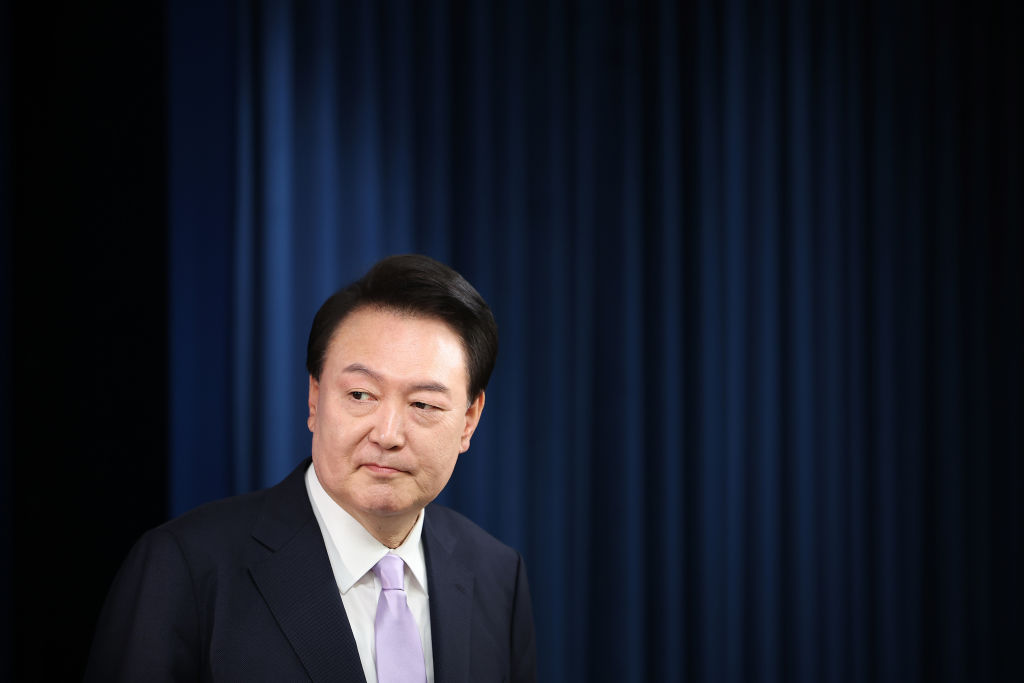South Korean President Yoon Suk Yeol’s impeachment on Saturday, which suspended him from his official duties, marked the culmination of 11 days of political turmoil following his unexpected decision to impose martial law.
Key events from martial law to impeachment:
December 3:
- At 10:30 p.m. (1330 GMT), Yoon declares martial law on national television, citing the need to root out “anti-state forces” and resolve political deadlock.
- An hour later, the military bans activities by political parties and lawmakers. Troops and police descend on the opposition-controlled parliament.
- Staffers use barricades and fire extinguishers to repel special operations soldiers, who arrive by helicopter and enter parliament by breaking windows.
- Lawmakers flee by hopping fences as crowds of protesters gather.
December 4:
- In defiance of the military’s orders, 190 lawmakers unanimously vote in the early hours to reject Yoon’s martial law declaration. Troops begin to withdraw.
- Three and a half hours later, Yoon announces on television that martial law is being lifted, ending the decree after about six hours.
- Opposition parties submit a motion to impeach Yoon.
- U.S. Deputy Secretary of State Kurt Campbell criticizes Yoon’s declaration as a “deeply problematic” and “illegitimate” decision.
December 5:
- The ruling People Power Party (PPP) decides to oppose Yoon’s impeachment, despite internal divisions.
- Yoon accepts the resignation of Defence Minister Kim Yong-hyun.
- Police launch investigations into Yoon, Kim, and the interior minister over allegations of treason and related crimes.
December 6:
- PPP leader Han Dong-hoon calls for Yoon’s removal, citing the martial law attempt. Some party members urge Yoon to resign.
December 7:
- Yoon addresses the nation, apologizing and stating he will leave his fate to the PPP but stops short of resigning.
- A vote to impeach Yoon fails as the PPP boycotts, preventing a quorum.
December 8:
- Prosecutors name Yoon as the subject of a criminal investigation over the martial law declaration.
- Former Defence Minister Kim is arrested.
December 9:
- The justice ministry bars Yoon from leaving South Korea.
December 10:
- Kwak Jong-geun, commander of the Army Special Warfare Command, testifies before a parliamentary committee that Yoon ordered lawmakers to be “dragged out” of parliament during martial law.
- Yoon’s office declines to comment on who is currently running the country as discussions of a caretaker government arise within the PPP.
- Former Defence Minister Kim attempts suicide.
December 11:
- Police attempt to search Yoon’s office but are blocked from entering the building.
December 12:
- In another televised speech, Yoon vows to “fight to the end,” alleging North Korea hacked South Korea’s election commission and questioning his party’s election defeat in April.
- The National Election Commission denies Yoon’s claims.
- Seven PPP members announce their intention to vote for impeachment, one vote short of the required number for the motion to pass.
December 13:
- Opposition leader Lee Jae-myung calls on PPP members to join and support impeachment.
December 14:
- Parliament impeaches Yoon with 204 out of 300 lawmakers voting in favor. At least 12 PPP members vote for impeachment.
- Yoon’s presidential powers are suspended, and Prime Minister Han Duck-soo assumes the role of acting president.
- The Constitutional Court receives the impeachment declaration and has six months to decide whether to remove or reinstate Yoon.










